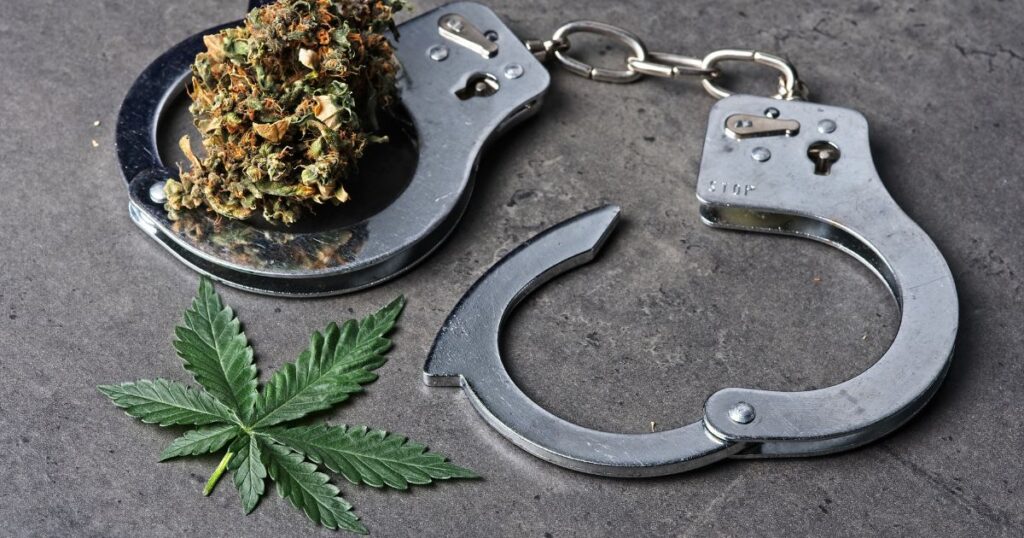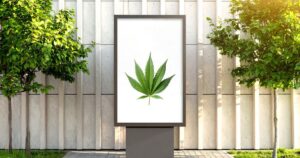Across the United States, a significant shift in public perception and state law regarding cannabis is underway. A total of 40 states now have medical cannabis programs, and 24 of those have gone a step further to legalize recreational use for adults. This wave of legalization has not only reflected changing social norms but has also unlocked a multi-billion dollar industry, creating jobs and generating substantial tax revenue.
Despite this progress, a staggering number of Americans are still being arrested for marijuana-related offenses. Recent data from the FBI reveals a troubling reality: hundreds of thousands of people are arrested each year for cannabis crimes. As reported by the pro-legalization group NORML, these arrests continue to disrupt lives, perpetuate social inequalities, and raise serious questions about the nation’s priorities in law enforcement.
How can a substance that is legally available to a majority of the population, sought after for its medical benefits, and a significant contributor to the economy still be the cause of so many arrests?
The Unsettling Statistics of Marijuana Arrests in the United States
According to 2024 crime data from the US Federal Bureau of Investigation, law enforcement made over 204,000 arrests for marijuana-related violations as reported by NORML. This figure is significant on its own, but it becomes even more concerning when broken down.
- Possession is the primary charge: Of those arrests, an overwhelming 92% (nearly 188,000) were for simple possession.
- A major driver of drug arrests: Marijuana possession arrests accounted for more than 22% of all drug-related arrests nationwide.
These numbers, show that while overall cannabis arrests have declined from their peak in 2007 (when over 870,000 arrests were made), they remain a primary focus of drug law enforcement. It’s important to note that these figures are likely an undercount.
Some law enforcement agencies don’t report their data to the FBI. Additionally, the FBI doesn’t detail tens of thousands of “unspecified drug abuse violations,” which potentially hides more cannabis-related charges.
This continued enforcement effort seems out of step with public opinion and state-level actions. Yet, in parts of the country where cannabis remains illegal, the “war on drugs” continues to target low-level cannabis users, saddling them with criminal records that have lifelong consequences for employment, housing, and education.
“Hundreds of thousands of Americans continue to be arrested annually for low-level cannabis-related violations even though a majority of voters no longer believe that the responsible use of marijuana by adults should be a crime.” said NORML’s Deputy Director Paul Armentano
Economic and Social Contradiction
The persistence of these arrests creates a jarring contradiction. On one hand, the legal cannabis industry is a booming economic engine. States are collecting billions in tax dollars, which fund public services like schools, infrastructure, and public health programs. The industry supports hundreds of thousands of jobs, from cultivation and processing to retail and ancillary services.
On the other hand, the government continues to spend taxpayer money to arrest, prosecute, and incarcerate individuals for possessing a substance that states legally sell just across a state line. This dual reality makes little sense. We celebrate the economic benefits while simultaneously punishing individuals for the very same activity, depending on their zip code.
The Alcohol Double Standard
Comparing cannabis to alcohol highlights the disparity even further. Alcohol causes far more significant public health and safety issues. It contributes to violent crimes, domestic abuse, and thousands of fatal car accidents each year. Yet, it is not only legal but widely accepted and celebrated in American culture.
While society heavily regulates alcohol, the idea of arresting hundreds of thousands of people for merely possessing it is unthinkable. This double standard is illogical. We penalize people for using a plant that is increasingly recognized for its therapeutic properties, while a substance with well-documented dangers is hardly criticized in the same manner. This inconsistency in our laws undermines the credibility of the justice system and points to a policy framework based on outdated stigmas rather than evidence.
Deschedule Cannabis and Get Rid of Marijuana Arrests
For decades, the federal government has classified cannabis as a Schedule I drug under the Controlled Substances Act (CSA). This classification defines it as a substance with a high potential for abuse and no currently accepted medical use—a definition that is scientifically and experientially false for millions of Americans.
There has been recent discussion about moving cannabis to a different schedule, such as Schedule III. While this would be a step in the right direction by acknowledging its medical value, it is not enough.
Rescheduling would keep cannabis under federal prohibition and create a complicated and restrictive regulatory environment, likely dominated by pharmaceutical interests. It would not end the senseless arrests or fully resolve the conflict between state and federal law.
The only logical and just solution is to completely deschedule cannabis. This means removing it from the CSA altogether, just like alcohol and tobacco.
Descheduling would grant states the full authority to regulate cannabis as they see fit, without the looming threat of federal intervention. It would end the era of mass arrests for a plant, allowing law enforcement to focus on serious and violent crime.
It’s Time for Sensible Policy
The data is clear. The public has spoken. The economic benefits are undeniable. Continuing to arrest over 200,000 people a year for marijuana is a senseless, destructive, and wasteful policy. These arrests disproportionately harm young people and communities of color, creating barriers to a normal life for a minor offense.
It is time for the federal government to align its policies with reality. The current system is a relic of a bygone era, and tinkering around the edges with rescheduling will only prolong the inevitable. The path forward is clear: deschedule cannabis now. Only then can we end these senseless arrests and allow the country to move forward with a rational, just, and modern approach to cannabis.





















